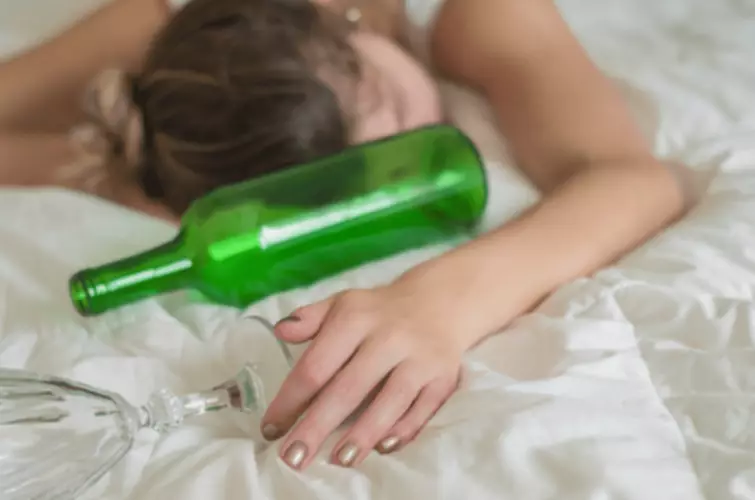Content
Alcoholics need a support system, people to lean upon, to encourage them, and to help lift them up when it might feel like all is lost. A person should never attempt to detox from alcohol alone and there are many professional detox services available to help. Alcohol withdrawal can be an extremely unsettling and scary experience if done alone. Even though detoxification is the body’s natural process of removing toxins from the body, when alcohol is concerned it can turn deadly. In a medical setting, trained professionals can monitor your symptoms and be prepared to administer any medications necessary to give you a safe, comfortable detox experience.
This is why skilled rehabilitation centers, where competent and compassionate professionals can supervise the detoxification process and manage withdrawal symptoms, are so vital for patient health and safety. Withdrawal and detox are the difficult first steps toward sobriety, but they are well worth taking. People who feel they aren’t ready to detox in a rehab facility sometimes try to taper off alcohol themselves.
Alcohol Withdrawal Stages and Severity
Delirium tremens can last up to 5 days, with a mortality rate of up to 37%. This highlights the severity of the condition and the need for immediate medical attention. For 95% of respondents, withdrawal symptoms lasted for two to eight days.
- The variety of symptoms changes, depending on the amount of time since someone last consumed an alcoholic drink.
- This information helps your medical team determine which medicine will help alleviate your discomfort.
- The time it takes withdrawal to start depends on factors like age, gender, genetics, overall health and alcohol use history.
Eventually, the central nervous system (CNS) adapts to the alcohol’s presence, becoming its new normal. The body works on overdrive to fight the alcohol’s depressant effect and keep neurotransmitters firing clearly. Detoxing from alcohol should always be done under medical supervision in order to ensure safety. Butch began counseling in 1989 and worked with Cumberland Heights throughout the 90s doing Aftercare, contract work and individual counseling.
Alcohol Withdrawal Timeline by Hour
Not only do these therapies help with detox, but they also promote overall health and well-being. Many clients take these practices with them into their everyday life as a tool to maintain their sobriety. Drinking while on disulfiram will bring about unwanted effects like facial flushing, nausea, headache, weakness, and low blood pressure. The adverse effects are meant to deter you from continuing your drinking pattern. Disulfiram is not meant to reduce your alcohol cravings timeline or restore brain functions like some other medications.

If you’re a heavy drinker—even if you don’t have alcohol use disorder—you’re likely to experience at least some symptoms if you stop drinking suddenly. If you’re continuing to suffer physical symptoms after two weeks of abstinence from alcohol, consult your healthcare provider. For the vast majority of people, the physical symptoms of alcohol withdrawal have passed by day seven. Your body and mind are undergoing enormous change as you adjust to sobriety. A healthcare provider can prescribe medications that can help you manage symptoms such as shakes, anxiety, and insomnia.
Hours 12 to 24 of Alcohol Withdrawal
If you’re ready to learn more about what we offer, reach out for help today. Though withdrawing from most types of drugs is uncomfortable, alcohol withdrawal symptoms can be life-threatening for some people. However, a treatment plan that begins with medically managed detoxification will help you get through alcohol withdrawal https://ecosoberhouse.com/ safely. Alcohol withdrawal can be a difficult part of the alcohol addiction recovery journey. Sandstone Care is here to support teens and young adults with mental health and substance use disorders. After stopping drinking, you may experience withdrawal symptoms that may last a few days or a few weeks in severe cases.
O Alcohol withdrawal symptoms include anxiety, tremors, sweating, and nausea. More severe alcohol withdrawal symptoms include fever, mental confusion, and seizures. Alcohol is a depressant that your body begins to rely on over months and years of drinking. Your brain eventually stops producing certain chemicals that it receives from alcohol, becoming dependent on the drug. That’s why when you quit drinking; it takes time for your body to adjust.
Footprints has the Gold Seal of Approval, which is the highest standard. The National Association of Addiction Treatment Providers is a nonprofit professional society designed to offer support to organizations across the continuum of care. Depressants affect the central nervous system, reducing the efficiency of brain and body communication. If you or someone you know https://ecosoberhouse.com/article/alcohol-insomnia-causes-and-ways-to-eliminate/ is struggling with their alcohol use, seeking professional help can make a difference. Patients with a history of alcohol dependence may have confounding social or underlying psychiatric issues that one should also be aware of once they are stabilized. Alcoholics tend to have nutritional deficiencies and thus should be provided with folic and thiamine supplements.

“Feeling much better. Very slight discomfort in the chest occasionally. No sweating. Disturbed sleep? Yes. But I guess in a few days, I should be fine.” “Depression is gone, anxiety gone, and all else gone. Didn’t sleep great last night, but tonight will be good.” “The third day sober feels like I’m in a big black hole and under great pressure—hard to breathe, future feels bleak, lost an old trusted friend in alcohol, can’t find an alternative.” “It’s been really tough, constant inner voice trying to persuade me just the one-night drinking again would be OK. I have just had to surf the urges, keep busy, and use all my strength.” “Last night was horrible. I was soaking wet with sweat, I jumped a few times in my sleep, and I had very vivid dreams.” Let us help you stay focused one day at a time and just keep moving forward in your journey to sobriety.
At this stage of the alcohol withdrawal timeline, most physical symptoms have softened if not completely disappeared. Most of these are replaced by mental distress and feelings of anxiety, depression, confusion, restlessness, anger, and others. Now, in recovery, the client will learn to express and manage these feelings and cope with relapse. It peaks in severity approximately two to three days after the last drink.

